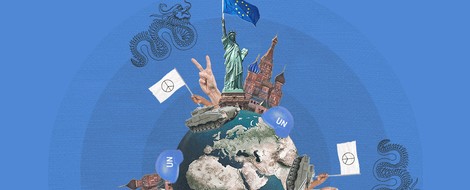Your podcast discovery platform
Curious minds select the most fascinating podcasts from around the world. Discover hand-piqd audio recommendations on your favorite topics.

piqer for: Globalization and politics Global finds
Luis BARRUETO is a journalist from Guatemala. Studied business and finance journalism at Aarhus University in Denmark and City University London.
The Indictment Of Brazil's Temer: World's Largest Corruption Probe Extends Further
Brazilian President Michel Temer is indicted in a probe which could extend even further the reach of Operation Car Wash – already one of the largest corruption investigations in history. Temer was accused by Brazil's prosecutor general, Rodrigo Janot, of taking a $152,000 bribe from the head of a food conglomerate firm, Joesley Batista, "in exchange for helping to resolve a problem that a Batista company was having with a power plant it owned" (NYT). Janot's decision said that Temer showed a total disregard for the office (AP). Temer was vehement in denying the charges, but as this is the first time since the return of democracy that a Brazilian president has faced criminal charges, "it is uncharted waters" (FT).Congress needs to decide whether to accept these charges and suspend Temer from the presidency while he is put on trial. Temer has a mere 7% approval and 76% of Brazilians think he should resign.
And trouble may only compound for Brazil's president: former Finance Minister Antonio Palocci was on June 26 sentenced to 12 years in prison as part of Operation Car Wash – his potential plea bargain agreement could offer further information on the country's political class' corrupt dealings, and help widen the scope of the anti-corruption probe. Brazil remains in a state of political turmoil – which only adds to its economic crisis – but markets shrugged off the impact of the presidential indictment (FT). This comes in stark contrast with when news of Temer's collusion with bribes and illegal payments first rose in May. But it may give peace to those concerned with the negative economic impact of fighting corruption on such a large scale, of which Temer himself is the foremost (Reuters).
As long as hope remains that Brazil can move to become a more open and democratic society, the present agitation might just be the right price to pay.
